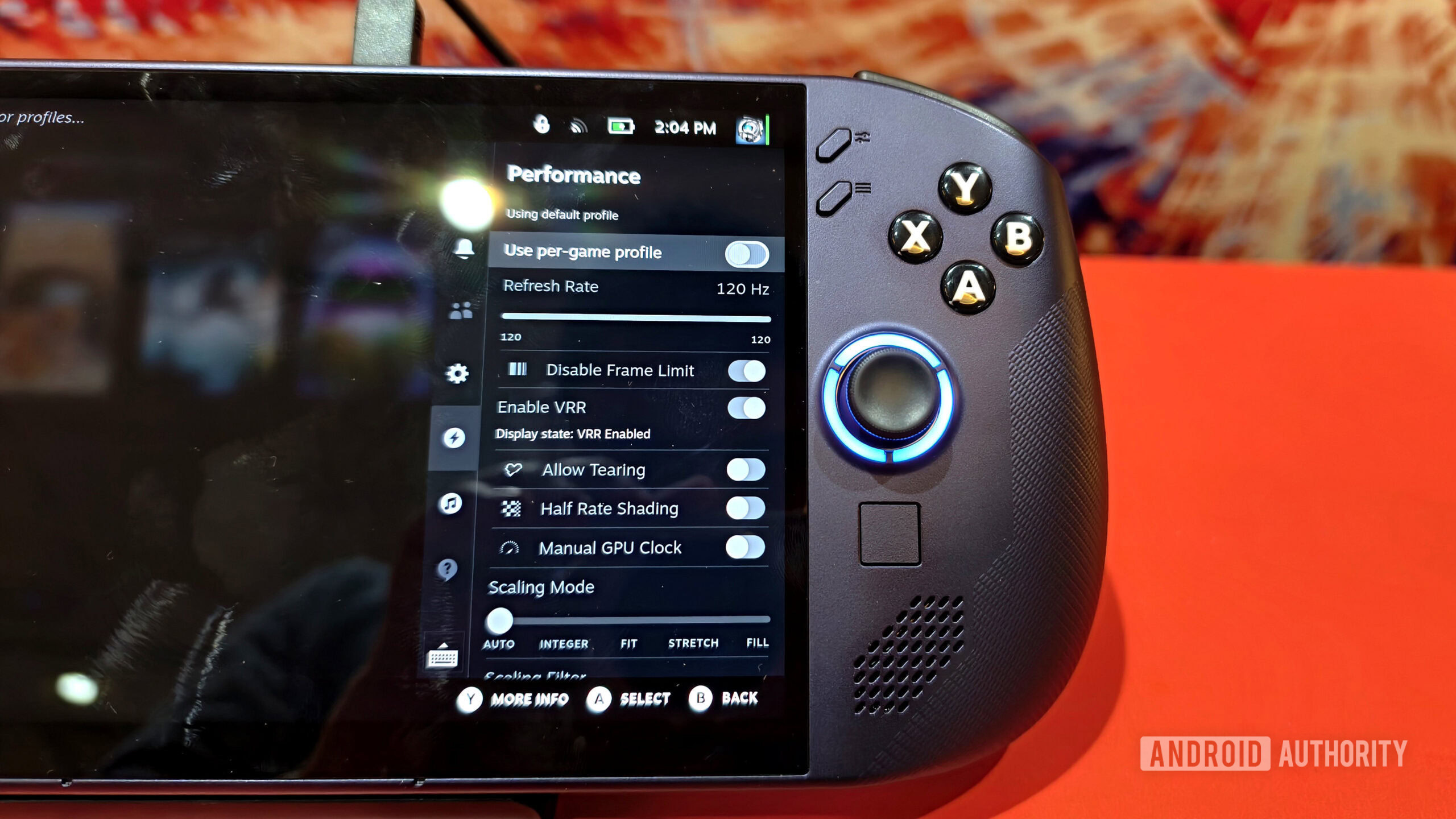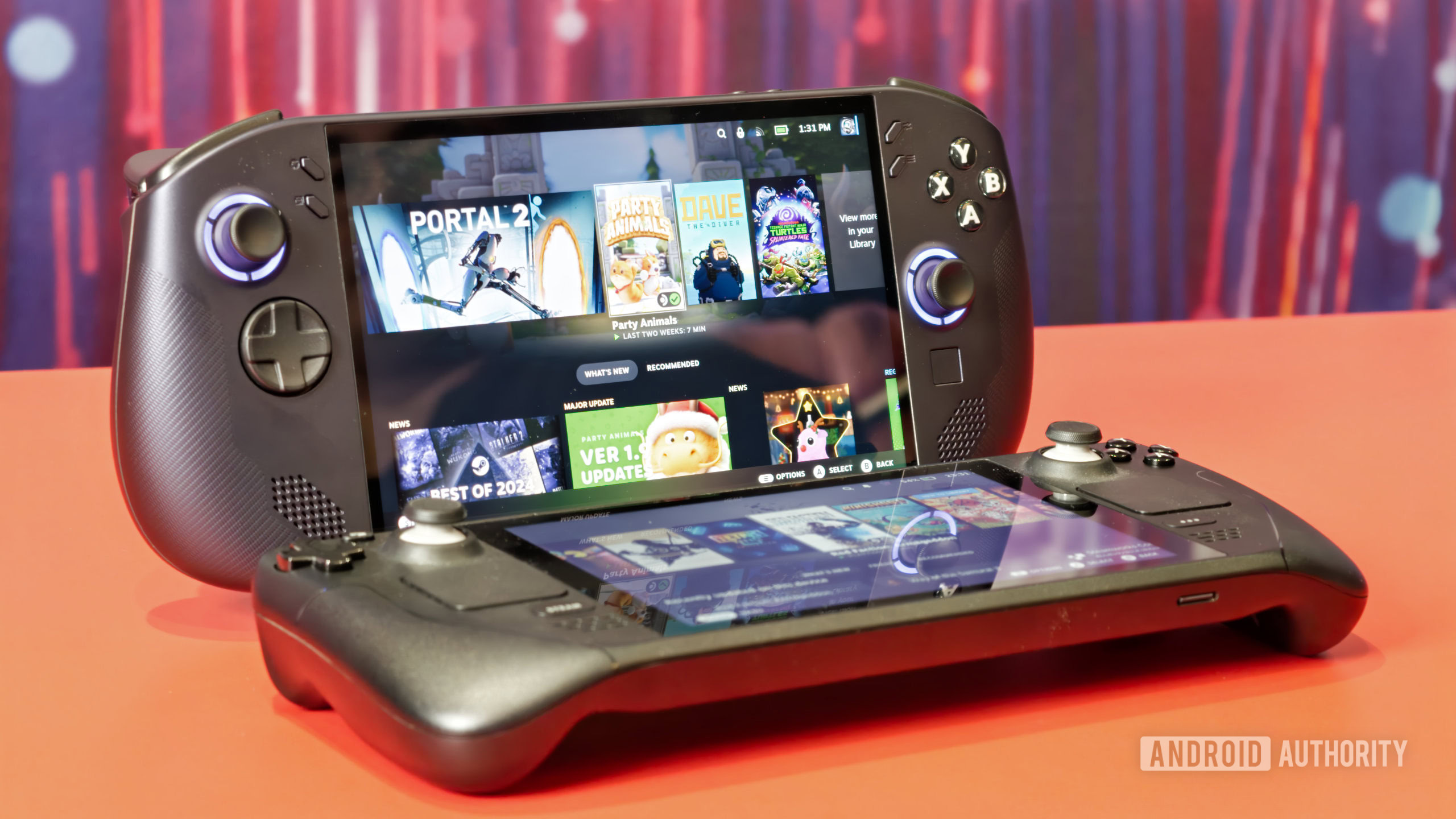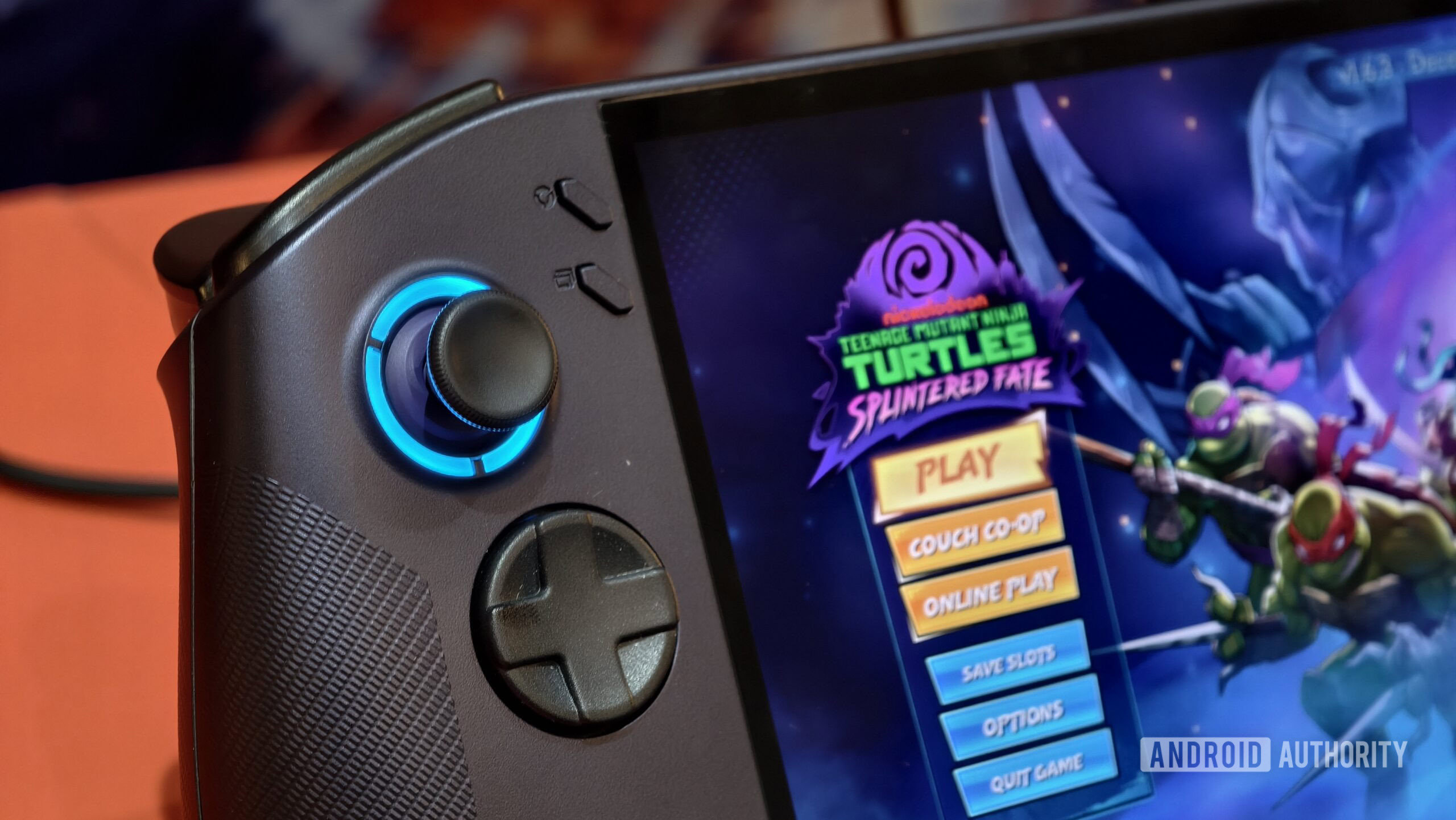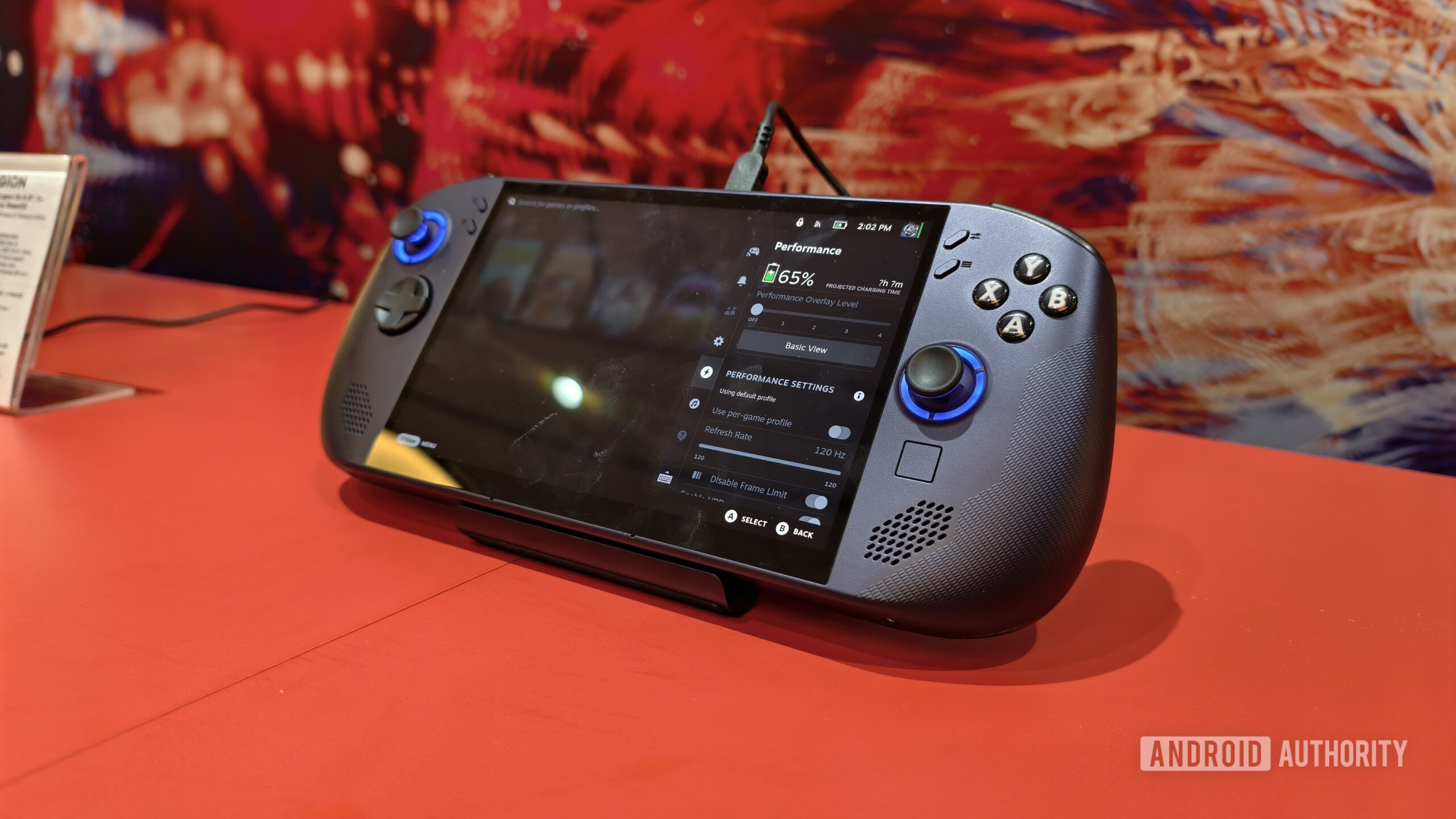Affiliate links on Android Authority may earn us a commission. Learn more.
Hands-on: The Steam OS-powered Lenovo Legion Go S is like a Steam Deck from a parallel universe
January 7, 2025
The Steam Deck is arguably the best PC-based handheld right now, and a big reason for that is the Steam OS platform. Unfortunately, those looking for another handheld with Steam OS have to resort to using unofficial versions of the platform. Thankfully, that’s changing today.
Lenovo has announced a Steam OS variant of the Legion Go S, making it the first officially licensed handheld running Valve’s operating system. This news should please plenty of gamers, as Windows-based handhelds have long been criticized for having an unintuitive user interface. But how close does Lenovo get to replicating the Steam Deck experience?
A Steam Deck by any other name?

The good news is that Steam OS on the Legion Go S looks extremely similar to the Steam Deck version. That means you’ve got the quick access menu (for performance tweaks, quick settings, etc) and the same power button menu to quickly get into desktop mode. You will notice a few extra system options, such as variable refresh rate controls (seen above). But otherwise, this version of Steam OS wouldn’t be out of place on the Deck.
A Valve representative also told Android Authority that Steam Deck owners can switch their microSD card from the Deck to the Legion Go S and all their games should seamlessly show up. That makes for a welcome, consumer-friendly approach, and we hope it applies to future licensed Steam OS handhelds too.

However, I did notice that the system face buttons (e.g., the home button and the quick settings button) didn’t match the UI. But we’re still months away from a release, so this should hopefully be fixed by then.
Valve representatives also confirmed to us that flashing Steam OS or Windows on the Legion Go S was similarly straightforward as doing so on the Deck. So you could theoretically get the cheaper Steam OS model and switch to Windows if you have a license. We’ve asked Lenovo to clarify this option, and the company told us that it was indeed possible but “not something we’re specifically endorsing or supporting.”
What about the design?

The Legion Go S is slightly narrower and shorter than the Steam Deck, and the two devices seemed to have similar weights. However, I’d probably lean towards the Lenovo device for longer gaming sessions just because the Legion Go S feels a little better in terms of weight distribution. But don’t get me wrong—this isn’t a svelte handheld like the Nintendo Switch or numerous Android handhelds, so it won’t change your mind if you’re looking for a pocket-friendly device.
The handheld also packs a few extra hardware options compared to the Deck, including a welcome if slightly spongy eight-way D-pad, the ability to switch between digital and analog triggers, some fancy lighting around the analog sticks, and two USB ports instead of just one as seen on Valve’s machine. The latter means you don’t necessarily need a dock if you want to output to a large screen while keeping it charged. The volume buttons also seem like they were ripped straight from the Steam Deck, although I’m not complaining, as it makes for a familiar feel.
It’s not all positive when it comes to hardware, as the Legion Go S packs a single absolutely tiny trackpad on the right-hand side. In fact, I initially thought we were looking at a fingerprint scanner when I first saw images of the device. It feels tiny in practice too, so I don’t have faith that this will be adequate for anything other than navigating the Linux desktop environment.
Pop the hood and you’ll find a Ryzen Z2 Go chip (with Z1 Extreme variants coming later), 16GB or 32GB of RAM, and 512GB of 1TB of storage. It’s not going to play the most demanding titles at full tilt, but then again, few PC handhelds can do that.
Is it worth buying for Steam OS alone?

We’re really glad to see that officially licensed Steam OS handhelds are finally here. This means you don’t have to settle for the Steam Deck or resort to tinkering if you want Valve’s controller-friendly platform on your handheld.
However, those hoping for better battery life purely by virtue of Steam OS might be disappointed. We were told that both versions have the same endurance, although Lenovo said it would only disclose specific figures closer to launch. Both versions also have a minimum TDP of 15W compared to 5W on Valve’s machine, making them thirstier devices in theory. So the combination of a higher minimum TDP and a slightly larger battery means I’m not expecting longer battery life than the Steam Deck OLED.
Still, the Legion Go S Steam model looks like a solid first step for officially licensed Steam OS handhelds, especially at the $499 price tag. Plus, Lenovo’s larger geographic footprint means you can finally buy a Steam OS handheld if the Deck isn’t officially available in your market.
Thank you for being part of our community. Read our Comment Policy before posting.